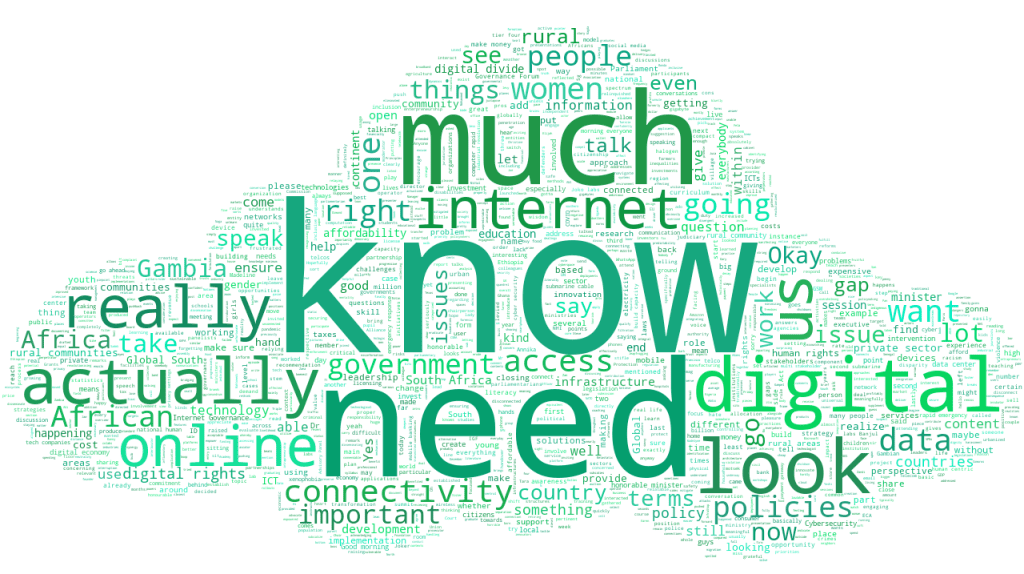Connectivity and digital rights a view from the Global South
30 Nov 2022 06:30h - 08:00h
Event report
The session provided an overview of perspectives on internet connectivity on the African continent, considering trends, achievements, challenges, opportunities, and possible solutions.
Initially, discussants addressed meaningful access to the internet from the perspective of the Global South, and considered issues surrounding usage, particularly as related to relevant content. For instance, despite a global access rate on mobile networks of 95%, 40% of this count does not translate to network usage. The majority of those with insufficient access are situated in the Global South, both across and within countries, and lack of access is exacerbated by gender and age disparities; urban/rural differentials; lack of affordability of data and device access; digital illiteracy; and lack of access to relevant local content. To bridge these divides we must reform policy, education, partnerships, and research.
Discussions also considered online privacy and security. For example, women and girls are particularly affected by gender-based violence online. Global and local solutions are needed here. At the global level, large technology companies should install privacy settings by default. Locally, youth plays a crucial role in privacy rights advocacy, but NGOs and the academic community must first create appropriate programmes to inform youth of these rights. Concerning security, innovative solutions are imperative, including encouraging girls to enrol in STEAM careers, setting realistic goals for online engagement and allowing for new means of identifying and locating perpetrators online. These means should include using IP addresses, mobile data, and computer rapid response teams linked to law enforcement. Building trust among the various bodies remains a challenge.
The discourse also included a discussion of adequate infrastructure for connectivity. Despite the development of on-going government initiatives such as e-governance, important to infrastructure development are ownership and partnerships. For instance, national governments must pursue manufacturing of the required infrastructural units in-house as well as promoting local and foreign investors to develop infrastructure in rural areas. However, challenges such as lack of funding, the negative effects of a for-profit focus of the private sector, and the lack of other basic public goods such as electricity remain vital concerns.
The meeting also called for a multistakeholder approach in addressing the digital divide. Governments must collaborate with rural and disconnected and disenfranchised communities and individuals, the private sector, human rights institutions and other NGOs, and academia to construct and implement affordable policy measures best suited to bridging the connectivity divide. Important to this collaboration is a human-centric approach.
By Alicia Shephard
The session in keywords
Related topics
Related event


